
What I am writing below is not about “Enemy at the Gate” of Jean Jacques Annuad, which depicts the battle of Stalingrad in WWII, but is about the armed terrorist forces who are approaching very dangerously to the gates the capital of Afghanistan.
Although the Senlis Council reported its concern about the Tablian almost reaching the gates of Kabul, the evidence shows it to be even more dangerous.
Three suicide attacks in one just week in different corners of Kabul, battle fronts in different spots in the south and in the east, and taking over districts from the control of government forces in provinces near Kabul. These all show that the Tablian are still strong and powerful in a big part of Afghanistan.
Fourteen policemen joined the Taliban in the southwest province of Farah just a few days ago. Seven others were beheaded by the Taliban just days before that in Kandahar. Currently there are disputes and quarrels between parliament and the President’s Office about the investigation and trial of executive officials in Baghlan for the mysterious and deadly explosion that took place in Nov 6 in this province, which killed more than 40 people including 6 members of parliament.
The situation seems to be worse than concern of the Senlis council about approach of the Taliban to the gates of Kabul when we see the government faced with failure regarding:
• strengthening of the security sector
• eradication of corruption in its departments
• bringing administrative reform to the appointment of the provincial governors
• offering alternative crops for farmers in the southern and eastern provinces who grow poppies, which are misused by the Taliban and empower them again day by day.
It reveals that the situation is more complicated than it seems when president Karzai, instead of having a practical strategy for administrative reform, wails for his provincial officials to do something for the will of people and then days later he has to confess that he has had communication and contacts with the Taliban about sharing power with them, even though it is obvious their demands are not acceptable to the Afghan people.
It is a question to be asked by the people of Afghanistan through a referendum whether or not they want to give power again the Taliban who ruled them for five years, but not the way that Mr. President would contact them and ask them to join the government.
What will happen if the Taliban join the government again?
What will happen is clear to all people of Afghanistan since the people experienced them in the late 1990s, when they suffered through the worst time in the history of the country.
How many women were obliged to stay home? How many girls students were prohibited to go to schools, how many artists, writers, intellectuals, actors, singers, professors and doctors were forced to abandon the country? These questions and the answers are all written on the pages of history.
In addition to the destruction of many historic and artistic artifacts and museums, including the Giant Buddha of Bamyan, so much of which were trafficked overseas during this period; the arts such as singing, calligraphy, painting, photography, theatre and filmmaking were strictly prohibited and recognized to be Haram (prohibited). All these things were almost eradicated during this five years. Artists were either tortured or killed or fled the country.
Specific groups of ethnic or sectarian minorities and women and girls suffered during this period. Afghanistan was damaged and a very negative image of the Afghanistan and the Afghans spread around the world—due to the actions of the Taliban. We were seen as "a country of the middle-ages with terrifying people."
This image of Afghanistan and the Afghans, especially after the terrorist attack of 9/11, which the Taliban supported, made Afghanistan look like the worst country in the world. Fortunately, there was a chance to change this image with the help of International Community. The terrorist government of Taliban was overthrown, and the people of Afghanistan have proved to merit freedom and democracy as they welcomed the new government. Despite all problems and lack of public awareness they participated in both elections; parliamentary and presidential to make the decision of how to live by voting, and take advantage of democracy.
In democracy why can’t everyone participate?
According to the most common definition of democracy, “government of the people, by the people, and for the people, and within the scope of this definition every political party is encouraged to participate in elections. It is also true, and people of Afghanistan believe in it, that any democratic country will have opposition of the government and criticize the government when it makes mistakes. Then elections are held, and the people elect their leaders.
But when the issue of Taliban or negotiation with them arises, there is a big difference between Taliban and the real meaning of opposition. First, they are not the opposition of the government but the opposition of the people and democracy in this country. Second, they are the armed terrorists who have been attacking the national interest and have been killing many many innocents. Third when they do not have the capability to offer an plan, except to make totally unacceptable demands of the government.
What will the Taliban do if they are given power?
When the Taliban are out of power, they arrest people, jail them, hang them, torture them and kill them. When they are in power, they will do what they did during their five years of power, but this time legally with Legitimacy and under the title of the elected government.
And if the government asks this question through a referendum of the people this fact will be obvious to all: that the people never want them again.
Instead of this, the current government can strengthen the defense, interior and intelligence services to defeat the terrorists rather than compromising and giving them again the power. Otherwise first let the soldiers of the international community go safely home, and then the government itself can make a deal with the Talibs.
If the Taliban really want to take part in the reconstruction of the country and join with the government, what is their plan? Do they want to do as they did six years back? If they don’t want the foreign peace-keeping soldiers, do they themselves want to keep the peace?
If they don’t want foreign experts and professionals, who do they have to replace with them? There are many more questions to be asked before this referendum can take place about giving the power to the Taliban.
It seems a little bit confusing to the international community that the Afghan government wants again to bring fundamentalism into its machinery after several years of fighting against it.
Will the international community accept the Taliban's presence in the government while it has been five years for five years against against terror and fundamentalism spending billions of dollars for this purpose in Afghanistan? Will they support a government where there is no chance for women, girls,ethnic and religious minorities, and there is no space and value for
democracy and freedom of expression?
This new government plan does not seem to be practical. Instead it is a kind of political game based on ethnicity, nothing else.
First, there was the freeing of the Taliban's active force from the jails through a program that was waste of money and re-empowerment of terror. Then another phase of this project began when there was a kind of interest of the government towards Hezb e Islami members. It was a bit obvious that something must be going on when more chances and opportunities were given to Hezb e Islami members in governmental positions within just the past two to three years. Now we see the results of how they are overtaking the government from inside and their fellows challenge the government from outside.
A Dari proverb says: " the yellow dog is brother of jackal" and same is the case with the relation of Hezb e Islami ( The Islamic Party) with the Taliban since the Commander Gulbudin Hekmatyar has announced his support for the Taliban. Still the government of president Karzai knowing all this kept opportunities open for the members of this party to work in governmental positions. Now we reap what the administration of president Karzai has sown.
Ministries like information and culture, defense, ministry of finance, and office of the attorney general are the clear examples of influence of "Hezb e Islami" in the government’s machinery. We will see how they are going to facilitate the Taliban's entry back in the government.
The parliament too has a remarkable number of Hezb e Islami members who can influence decisions and help the other Hezb e Islami members in other branches of the government to achieve their goals and set the stage for the Taliban.
The people of Afghanistan have become experienced enough by now to distinguish bad from good and say no to wrong decisions by the government considering their passed experiences. I hope they are well-prepared because of the enemy at the gate!
--Mohammad Amin Wahidi






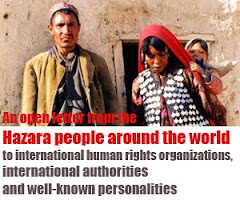


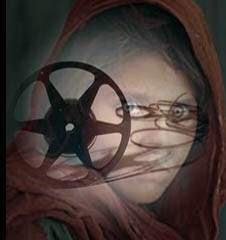
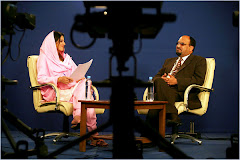
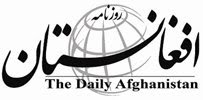


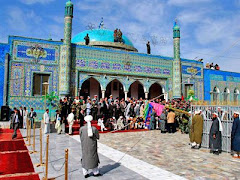
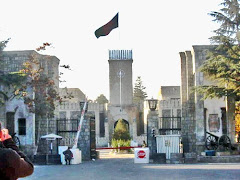
No comments:
Post a Comment
Note: Only a member of this blog may post a comment.